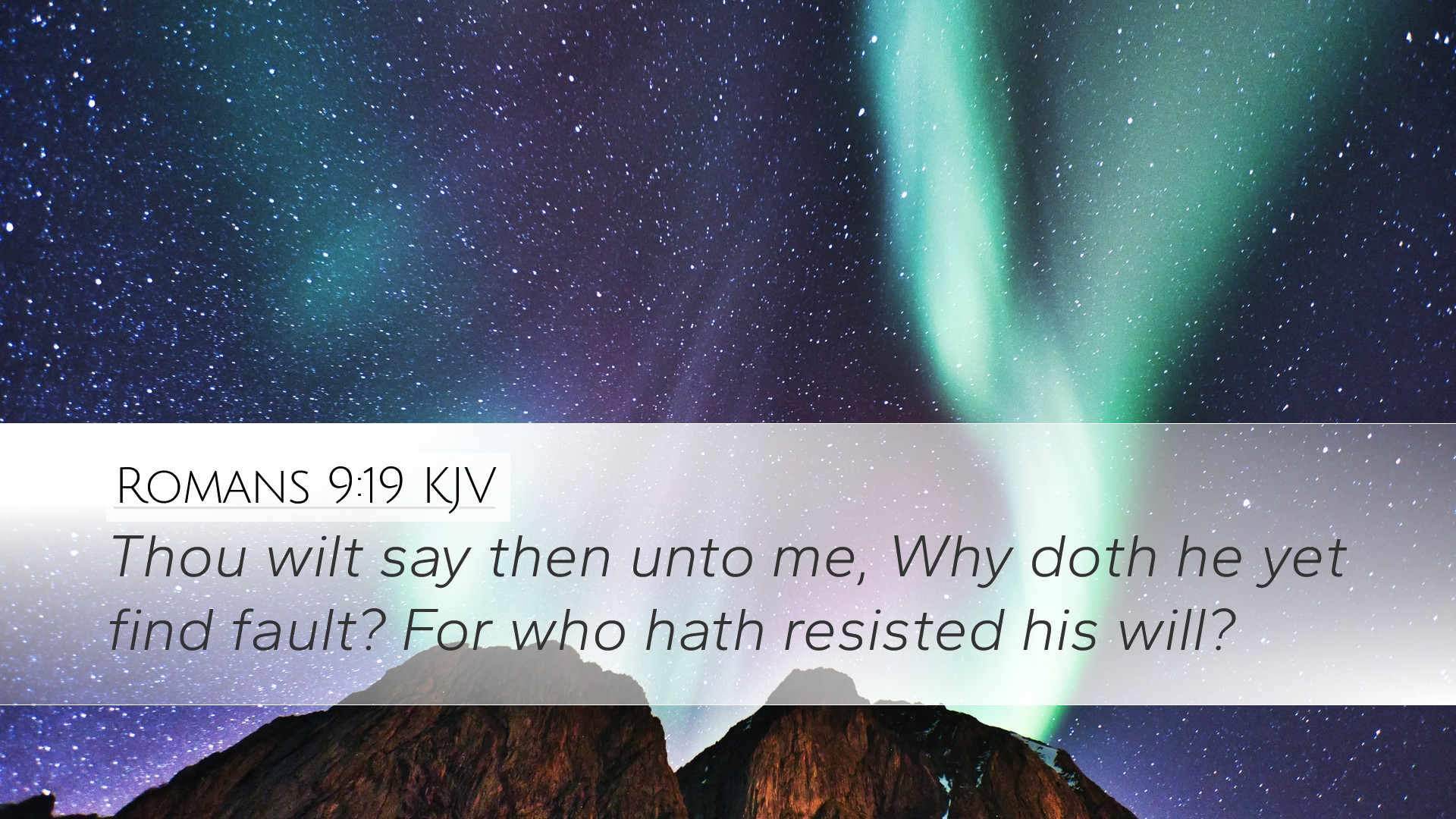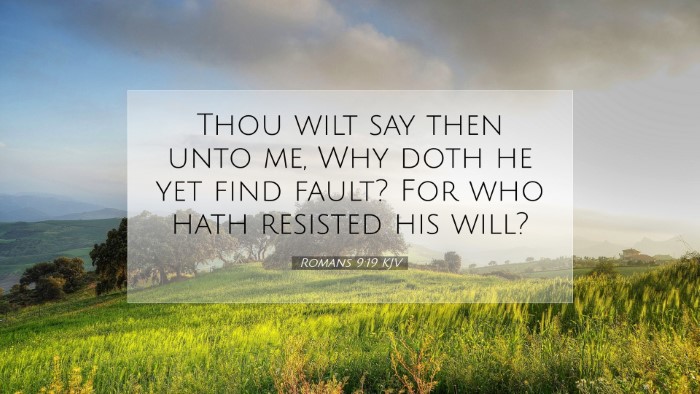Commentary on Romans 9:19
Romans 9:19 states, "You will say to me then, 'Why does He still find fault? For who resists His will?' This verse introduces a pivotal question about God's sovereignty and human responsibility, themes that have generated much theological discourse.
Contextual Background
The Apostle Paul, in Romans 9, is addressing the mystery of God's elective purpose, particularly concerning Israel's history and their rejection of the Gospel. The Jews of Paul's day, grappling with the apparent failure of God’s promises, provoke Paul to clarify the nature of divine election and human accountability.
The Question of Divine Justice
Paul anticipates objections from his audience regarding the fairness of God's decisions. The phrase "Why does He still find fault?" embodies a fundamental concern about the perceived injustice of divine will. Paul, like a skilled debater, presents these questions to engage his audience fully, urging them to wrestle with the profound implications of his teaching.
Insights from Commentary
-
Matthew Henry:
Henry emphasizes that this question highlights the human inclination to question God's decisions. He notes that the idea of God's sovereignty can be unsettling, suggesting that while humans possess free will, God's overarching will cannot be thwarted. He asserts that rather than viewing God’s will as arbitrary, believers should submit to the divine wisdom behind these choices.
-
Albert Barnes:
Barnes observes that the question reflects the struggle to understand divine justice in light of God’s absolute sovereignty. He argues that the challenge arises not from God’s actions but from human misunderstanding of His purposes. Barnes emphasizes the importance of recognizing that human resistance to God's will, although present, does not challenge God's authority or power.
-
Adam Clarke:
Clarke takes a slightly different approach, reflecting on the philosophical implications of the question. He states that the inquiry into divine fault-finding is crucial in understanding God's grace. According to Clarke, recognizing human sinfulness serves to highlight the significance of God's mercy and the necessity of His just character.
The Nature of Resistance and Responsibility
Paul's rhetorical question highlights a paradox of faith: while God’s will is ultimately unresistable, humanity's moral responsibility persists. The interplay between God's sovereignty and human choice is a central theme throughout scripture. This verse invites deeper reflection on how God’s providence and our agency coalesce.
Theological Implications
-
Human Free Will:
The inquiry suggests a genuine paradox; how can humans be held accountable for choices if they ultimately fall under God's sovereign decree? This dilemma challenges readers to reconcile their understanding of divine control with the reality of human action.
-
God's Sovereignty:
A critical aspect of this verse is the affirmation of God's sovereignty. Despite human questions and objections, scripture affirms that God’s plans will ultimately prevail, and His will cannot be effectively opposed.
Conclusion
In summary, Romans 9:19 poses vital questions regarding human responsibility in light of divine sovereignty. Paul's intention in raising these issues is to provoke thought and reflection among believers, urging them to trust in God's goodness and righteousness even when circumstances challenge their understanding. By acknowledging both divine authority and human response, we deepen our appreciation for the complexity of God’s plan of salvation and His unyielding grace.
Ultimately, this verse serves as a reminder that while questions about God's ways may linger, faith calls us to embrace the mystery of His providence and the certainty of His redemptive purposes.


